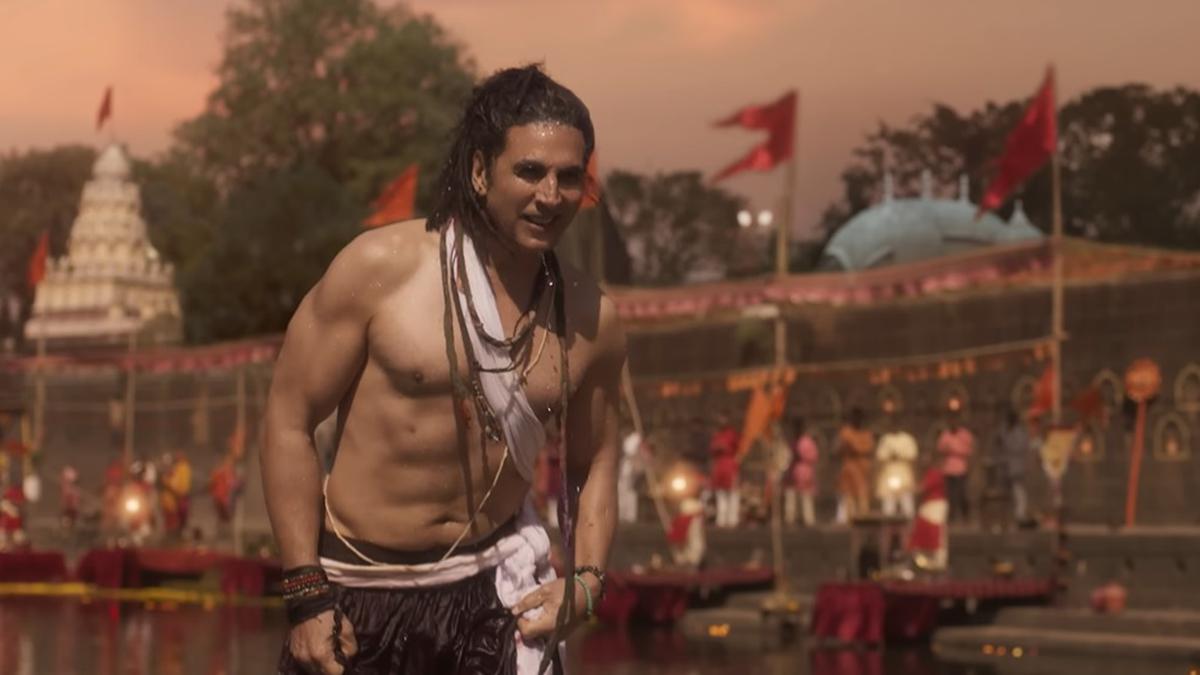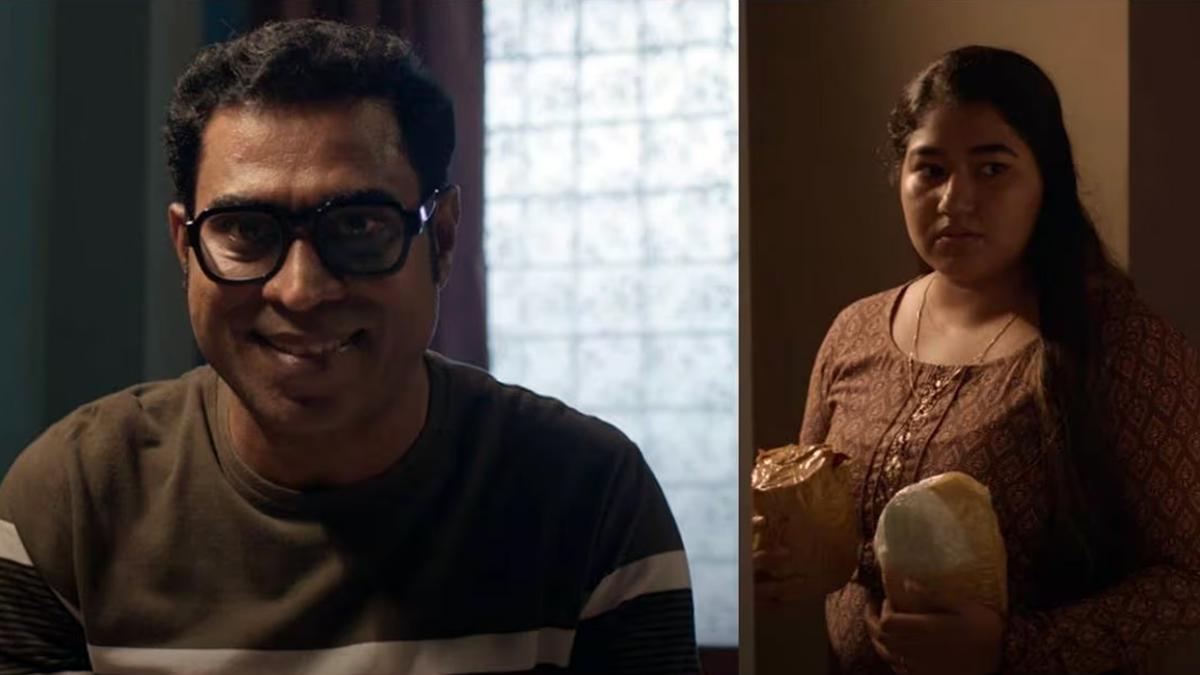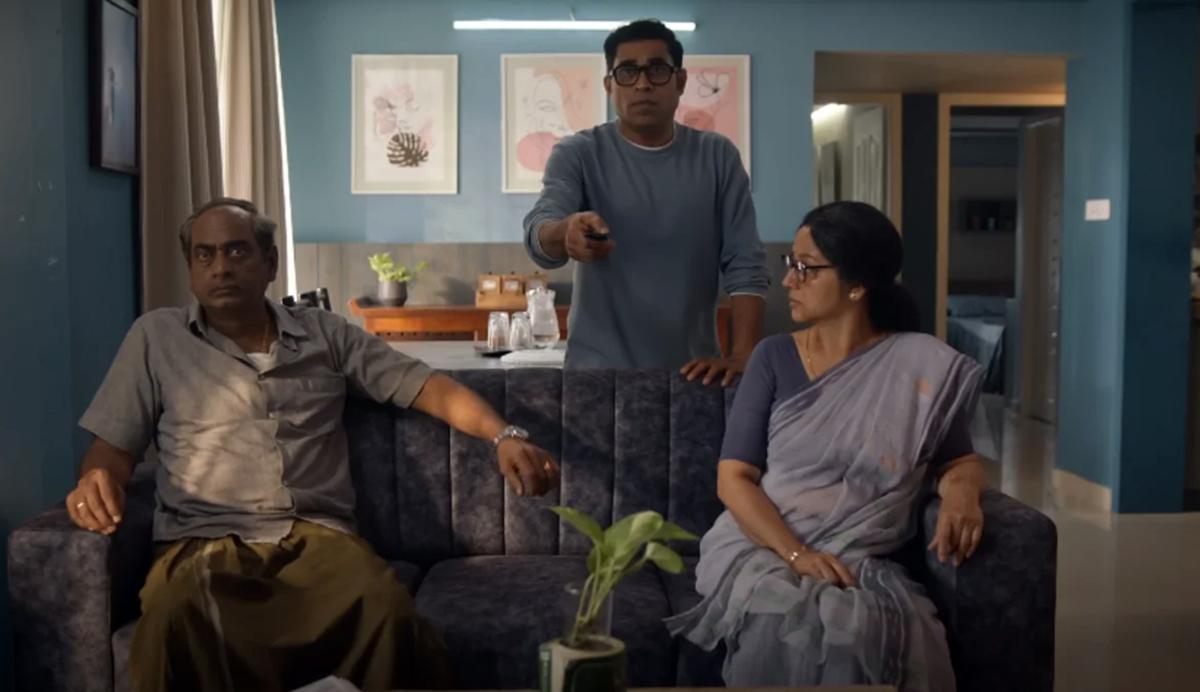By some coincidence, Manoj Bajpayee and Pankaj Tripathi — arch-enemies in the 2012 epic Gangs of Wasseypur — have both featured in courtroom dramas this year that invoke Hinduism to rectify society. In Sirf Ek Bandaa Kaafi Hai(on ZEE5), a solid if self-serious film, Bajpayee excerpts a mythological storyline to bring a monstrous godman to book. Tripathi’s tactics are much the same in OMG 2. However, he also brings a comic gentleness that’s identifiably the actor’s own. Kamasutra, Khajuraho, Panchatantra; his character cites everything with a calm smile and a gentle voice. The few times he raises his decibels in court, it earns a laugh.
OMG 2 follows up OMG – Oh My God!, a 2012 film that satirised the sham of organized religion and starred Akshay Kumar, Paresh Rawal and Mithun Chakraborty. Rawal and Chakraborty — former parliamentarians both — have dropped off from the sequel; only Kumar lingers on, as does the brave Govind Namdev. The focus of the new film is not religion but sex education in schools, which explains why the makers had sought a UA certificate. The censor board, in its wisdom, ordered a bunch of changes and granted it ‘A’ (Adult) rating. It also reportedly had Kumar’s character modified from Lord Shiva to a sort of ‘messenger’ of God (there is already a different franchise by that name, featuring a convicted felon).
OMG 2 (Hindi)
Director: Amit Rai
Cast: Akshay Kumar, Pankaj Tripathi, Yami Gautam Dhar, Govind Namdev, Arun Govil
Run-time: 156 minutes
Storyline: A divine emissary, played by Akshay Kumar, helps a distressed father win a defamation suit against his son’s school in court
The protagonist of OMG 2, Kanti Sharan Mudgal (Pankaj Tripathi), is a devout shopkeeper at a Hindu Shiva temple in Ujjain. We meet him in a bloom of orange; from the buntings and awnings on the temple premises to the tilaks and marigolds exchanged in prayer. Kanti lives in temple-allotted housing with his wife and two kids. It’s a simple, sedate existence, until the day his son, Vivek, is chucked from school. Kanti discovers the boy had taken intensely to masturbating after some bullies convinced him he has a small appendage; later, the same kids filmed him in the act and uploaded the video online.
A doctor (Brijendra Kala) forewarns Kanti that children who discover masturbation experience debilitating bouts of guilt. We witness this in real-time, as Vivek tries to end his life and is rescued by a dreadlocked stranger with a beatific smile. This, of course, is Kumar, a Shiva emissary buzzed in from upstairs for divine support. On his urging, Kanti — who accepts he’s been a less-than-perfect father — sues his boy’s school, as well as all the hucksters and miracle workers who misled his child. He also sues himself, convinced he’s as much to blame. Looking on in bewilderment are a judge (Pavan Malhotra) and a slick defense lawyer (Yami Gautam Dhar).
Kanti’s arguments in court begin silly and simplistic but often wind up to a larger point. Quoting from ancient texts, he highlights the centrality of sex and sexual well-being in Indian society. To the film’s credit, even as it keeps expanding the ambit of discussion, it doesn’t feel heavy. Tripathi pulls a Ted Lasso act (both in its cheeriness and inbuilt annoyance). The film has an insistently jokey approach. Rai is fine with his audience giggling at phrases like ‘hast-maithun’ and ‘sex worker’; once they have laughed a little and tension is dissipated, the film presumes, a larger realisation can dawn.
Arguing for the liberalism embedded in Hindu philosophy, the film uses Hinduism liberally. Kumar appears to relish the Shiva cosplay; a white bull follows him around wherever he goes. Every 10 minutes or so, we get a shot of a trident, a shiv lingam or a framed portrait of God. Kanti converts the courtroom into a symbolic temple (Malhotra’s judge tries to protest, huffs, and gives up). Yami Gautam’s character is named Kamini; the Sanskrit word ‘kāma’, meaning sexual desire and pleasure, is said multiple times.
Yet the film is equally careful. Kanti refers to an open and progressive past — “When the world was taking baby steps, our Sanatan Hindu religion was soaring,” he says proudly — yet there is no mention (even in passing) of the references to homosexuality in ancient Indian texts. His ‘sex education is important’ spiel upsets conservative groups across religions; we see Hindu, Muslim and Christian clerics protesting in unison on TV. OMG 2 is a better film than Ram Setu— it has the candour and charm of fantasy — but it also resorts to predictable Macaulay-bashing near the end to explain the flaws of Indian society.
The film could have been shot and edited better (the CGI, too, looks shabby). Geeta Agarwal Sharma is funny as Kanti’s easily unnerved wife. So is Kumar at times; on one occasion, he drunkenly sings ‘Udja Kale Kawan’ from Gadar, the violent and overloud franchise OMG 2 is clashing with in theatres. Sunny Deol characters have a way to make themselves heard. But let’s also listen to Pankaj Tripathi.
OMG 2 is currently in theatres
Those who require assistance for overcoming suicidal thoughts may contact Aasra (022-27546669) or the Vandrevala Foundation (18602662345/18002333330).
Those in distress could seek help and counselling by calling helplines from this link.




























/cdn.vox-cdn.com/uploads/chorus_asset/file/25782636/247422_ChatGPT_anniversary_CVirginia.jpg)
/cdn.vox-cdn.com/uploads/chorus_asset/file/25789444/1258459915.jpg)

/cdn.vox-cdn.com/uploads/chorus_asset/file/25546252/STK169_Mark_Zuckerburg_CVIRGINIA_D.jpg)


/cdn.vox-cdn.com/uploads/chorus_asset/file/23951353/STK043_VRG_Illo_N_Barclay_3_Meta.jpg)